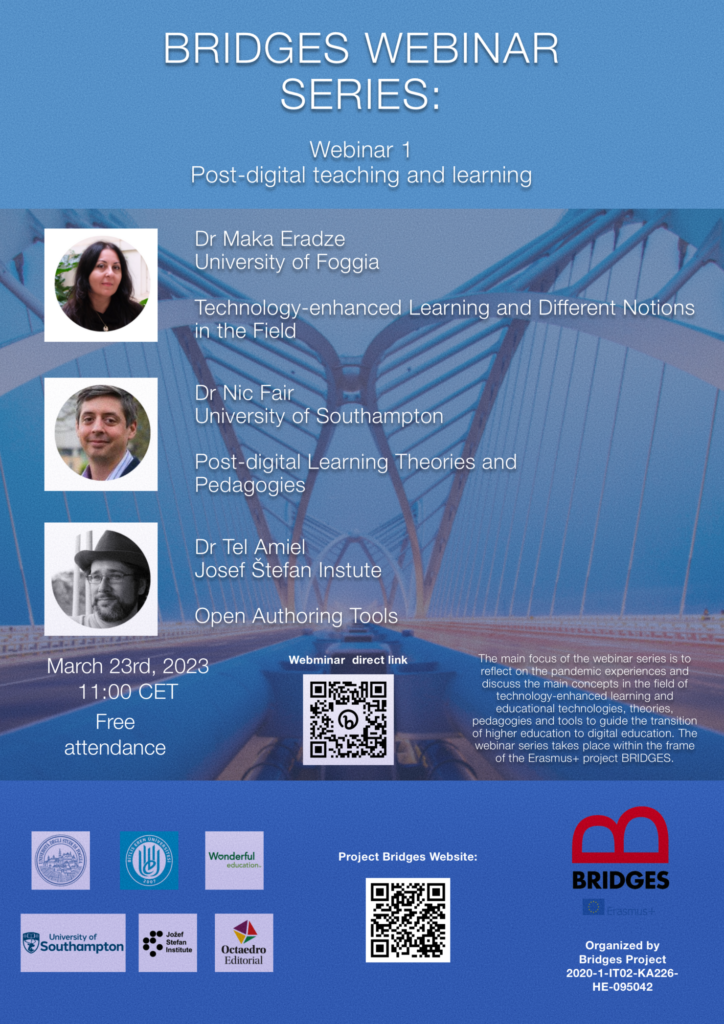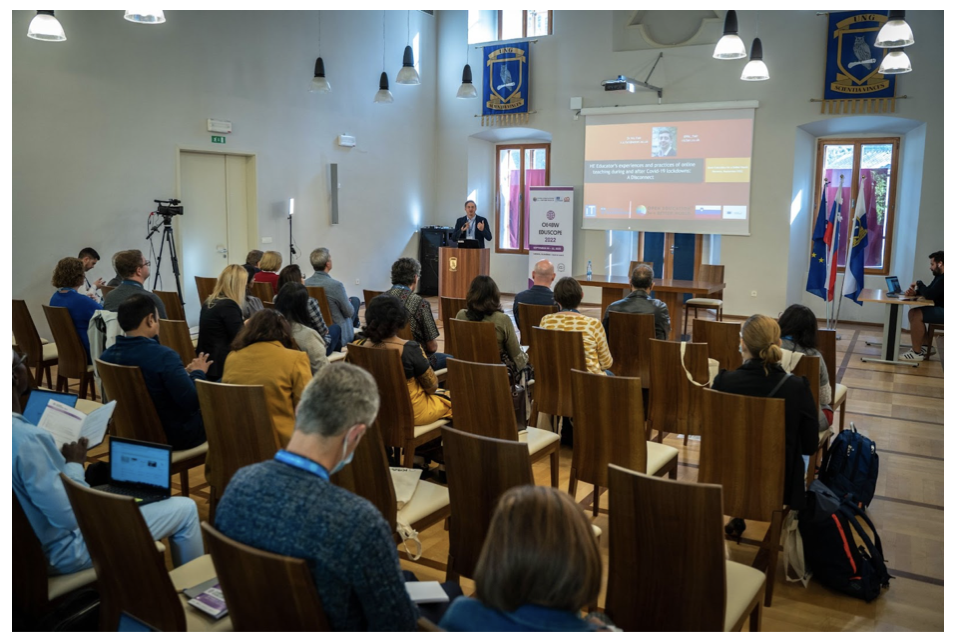The main focus of the webinar series is to reflect on the pandemic experiences and discuss the main concepts in the field of technology-enhanced learning and educational technologies, theories, pedagogies and tools to guide the transition of higher education to digital education. The webinar series takes place within the frame of the Erasmus+ project BRIDGES.
The attendance is free. The 23 of March at 11:00 CET.
Here is the link for attendance: https://bit.ly/425NzXB

With:
– Dr. Maka Eradze, University of Foggia. Maka Eradze, Maka Eradze, is a PhD in Technology-Enhanced Learning (Tallinn University). Currently, she is an assistant professor of education sciences at the University of Foggia. Her research interests included technology-enhanced learning, use of tools in education in higher education and school contexts, learning analytics, learning design, blended learning, multimodal classroom observations, MOOCs, design-based research, design of educational innovation, and educational research methodologies and methods. She is an author of numerous publications in technology-enhanced learning, co-editor and reviewer for numerous international journals, programme and organising boards of number of international conferences.
– Dr. Nic Fair: University of Southampton. Dr Nicholas Fair is a Senior Research Engineer at the University of Southampton. He has a PhD in Web Science and Digital Education, specialising in Personal Learning Networks. He has worked for nearly four years with the IT Innovation group within the School of Electronics and Computer Science developing online education and training and managing large Horizon Europe projects. He is a UNESCO Mentor for Open Educational Resources; the lead academic and designer of the FutureLearn ‘Learning in the Network Age’ MOOC; and has led the ‘Living & Working on the Web’ innovation module at Southampton. In response to the Covid-19 lockdowns he helped to develop and deliver LifeLab Online for schools and colleges to learn about and participate in saliva testing programmes. He has a range of conference presentations, journal papers and book chapters, including ‘A Framework for the Analysis of Personal Learning Networks’ in the book ‘Networked Learning Research Series: Conceptualizing and innovating education and work with networked learning’. He has worked on secondment to the Open Innovation Team at the UK’s Cabinet Office, is an editorial assistant on the Journal of Higher Education Pedagogies, a member of the British Educational Research Association and the International Federation of National Teaching Fellows, and is a representative on the University of Southampton Senate.
– Dr. Tel Amiel: Josef Stefan Institute. Tel Amiel is adjunct professor at the School of Education at the University of Brasília (Brazil) where he coordinates the UNESCO Chair in Distance Education, and is adjunct professor at University of Nova Gorica in the Masters in Open Leadership program. He co-leads the Open Education Initiative and activist research group. Currently visiting researcher at Jozef Stefan institute.


Comentarios recientes